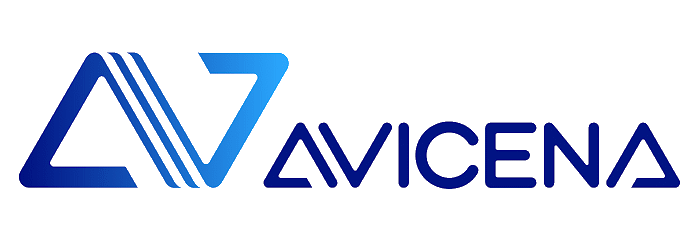In today's competitive job market, speed is essential when it comes to recruiting top talent. Traditional hiring methods, which rely heavily on job boards, recruiters, and lengthy interview processes, can take weeks—sometimes even months—to find the right candidate. However, companies that need to fill key roles quickly are now turning to referral-based hiring platforms like Octopyd, which are revolutionizing the recruitment process by drastically reducing the time it takes to hire high-quality candidates.
Octopyd uses a referral-based system combined with a 7-tier vetting process, ensuring that companies are connected with qualified candidates faster and more efficiently than traditional methods. In this blog, we’ll explore how a referral-based system, like the one Octopyd uses, significantly reduces hiring time while maintaining a high standard of candidate quality.
The Time-Consuming Nature of Traditional Hiring
Traditional recruitment processes are often riddled with inefficiencies that slow down the hiring process. Here’s why it takes so long:
- Sifting Through Resumes: HR departments spend hours reviewing hundreds of applications, many of which are irrelevant or unqualified for the role. Filtering through these resumes takes significant time and effort.
- Initial Screenings and Interviews: After resumes are reviewed, candidates undergo several rounds of interviews, which involve various stakeholders within the company. Coordinating these interviews, collecting feedback, and making decisions can drag out the process.
- Background Checks and Verifications: Once a candidate is selected, companies still need to perform background checks and reference verifications, which can add additional delays.
- Job Postings and Recruitment Agencies: Posting a job online and waiting for applications can take weeks. Even recruitment agencies, while helpful in some cases, add an extra layer to the process, often prolonging the time it takes to make a hire.
This traditional model is not designed for speed, leaving companies vulnerable to losing top talent to competitors who can make quicker decisions.
How a Referral-Based System Speeds Up Hiring
Referral-based hiring changes the game by eliminating many of the time-consuming steps involved in traditional recruitment. Here’s how:
- Pre-Vetted Candidates Through Expert Referrals
The first step in Octopyd’s system is relying on a network of subject matter experts (SMEs) to refer candidates they know and trust. These experts, who are familiar with the role and industry, already understand the skills and qualifications needed for the job. Instead of posting a job online and waiting for responses, companies receive referrals from industry professionals who recommend only the most qualified candidates.
Why this reduces time: The need to sift through hundreds of resumes is eliminated. Companies immediately receive a shortlist of candidates who have already been pre-vetted by trusted experts.
- Immediate Access to a Specialized Talent Pool
Octopyd’s platform gives companies access to a specialized talent pool through its network of SMEs. Instead of starting from scratch with a job post, companies are immediately connected with candidates who have been vetted and referred by professionals who know the industry and role requirements.
Why this reduces time: The hiring process is jump-started by bypassing the typical application phase and moving straight to evaluating pre-qualified candidates. This cuts down the initial sourcing time significantly.
- Faster Screening Through Expert-Led Reviews
At Octopyd, the initial screening and evaluation of candidates are handled by a panel of industry experts. These SMEs review the referred candidates' skills, qualifications, and experience, ensuring that only those who meet the specific requirements are passed on to the company.
Why this reduces time: By leveraging expert reviews early in the process, companies don’t have to spend valuable time conducting multiple rounds of preliminary interviews. The SME panel has already narrowed down the selection, saving companies from interviewing unqualified candidates.
- 7-Tier Vetting Process Reduces the Need for Multiple Interviews
Octopyd’s 7-tier vetting process includes several stages of expert reviews, background checks, cultural fit assessments, and AI-driven analysis. By the time the candidate reaches the company, they have already been thoroughly vetted and assessed for both skills and culture fit.
Why this reduces time: This process eliminates the need for numerous interviews, which are often a major bottleneck in traditional hiring. The company can make decisions faster, as the candidate has already passed multiple levels of scrutiny before even meeting the hiring manager.
- Cultural Fit Assessed Early in the Process
One of the biggest reasons companies struggle with hiring is finding candidates who align with their culture. Traditional hiring methods typically assess cultural fit during later stages of the interview process. In contrast, Octopyd’s referral-based system incorporates cultural fit assessments early on. Candidates are referred not only based on their qualifications but also on their compatibility with the company’s values and culture.
Why this reduces time: By addressing cultural fit upfront, Octopyd helps companies avoid wasting time on candidates who may have the right technical skills but are not a good fit for the team or company culture.
AI-Driven Insights and Background Checks
Octopyd incorporates artificial intelligence (AI) to gather public information about candidates and perform background checks, reducing the need for manual checks. This step allows companies to get a comprehensive view of the candidate quickly and ensures transparency in the hiring process.
Why this reduces time: Automated AI tools streamline background checks and data analysis, speeding up what is often a labor-intensive process. This allows companies to finalize hiring decisions faster.
- Reduced Time to Offer and Onboarding
Since candidates referred through Octopyd have already been pre-vetted and assessed at multiple stages, companies can make quicker decisions and extend offers faster. Additionally, because these candidates have been thoroughly evaluated, the onboarding process is often smoother, as there is less uncertainty about the candidate’s qualifications and fit.
Why this reduces time: The entire process, from referral to onboarding, is streamlined, allowing companies to fill key roles faster and get new hires integrated into the team more efficiently.
The Results: Faster, More Efficient Hiring
By using a referral-based hiring system like Octopyd, companies can significantly reduce the time it takes to fill critical positions. The process is designed for efficiency—leveraging industry expertise, automating background checks, and incorporating cultural fit assessments early on. This leads to faster hiring times without sacrificing the quality of the candidates.
In fact, Octopyd’s referral-based hiring system has resulted in the highest retention rates in the industry, proving that a faster process does not mean compromising on the quality of hires. Companies can benefit from quicker decisions, reduced recruitment costs, and more efficient onboarding processes—all while ensuring they hire the best candidates for the job.
How We Can Help
At Octopyd, we are committed to transforming the hiring process through our referral-based platform. By leveraging a network of subject matter experts and a thorough 7-tier vetting process, we help companies reduce hiring time and improve the quality of their hires. If you're looking for a faster, more efficient way to find top talent, Octopyd is the solution.

















